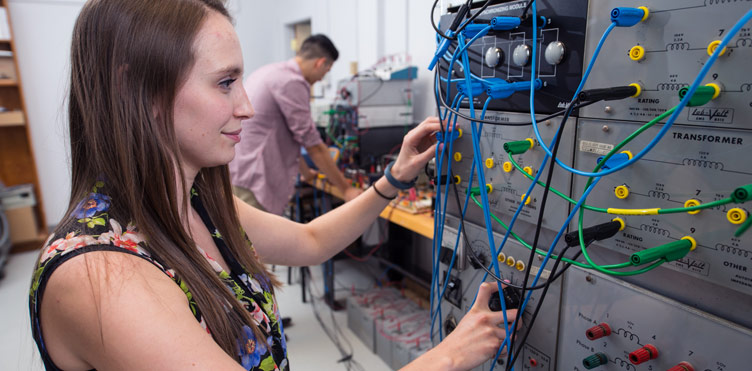The federal government and Halifax-based Emera Inc. have committed more than $4.3 million to develop smart grid expertise and infrastructure at the University of New Brunswick.
The Atlantic Canada Opportunities Agency issued a press release Wednesday saying the organizations are working on clean energy technologies that will advance Canada’s efforts to build a clean economy.
“The partnership we’ve formed to become leaders in advanced smart grid technologies is having a global impact,” said UNB President and Vice-Chancellor Eddy Campbell in a statement. “Our success would not be possible without our government and industry partners. After more than a decade of work by many researchers and students here, UNB is now playing a key role in advancing the transformation of conventional power grids around the world.”
Centred in New Brunswick, the Smart Grid Initiative is developing a range of products that utilities can use in their grids to accommodate the coming revolution in electricity production. Its proponents applied for federal supercluster funding but did not make the short-list. They have said they are looking for funding from other sources.
The goal of the smart grid movement is to use cutting-edge technology in the grid to optimize the introduction of new electricity generation and monitoring technologies. Add in improvements through data analytics and mobile applications, and you can understand that in the future the electricity grid will be far more than a series of wires.
Trispectra Is a Shining Example of a Smart Grid Startup
With the money committed by the federal government and Emera, UNB will build on existing Smart Grid expertise and refine its technology.
The Government of Canada is contributing more than $2.8 million through ACOA’s Atlantic Innovation Fund, as well as $82,100 through NSERC. Emera Inc. is providing $1.4 million.
The project includes designing, building, testing and demonstrating a suite of Distributed Energy Resource solutions for commercialization by industry and implementation by utilities. Emera, the parent company of Nova Scotia Power, will deploy and test the project results within its system network at its subsidiary Barbados Light and Power. After testing in a real-world environment, the results will be refined and validated through industry players, users, suppliers, regulators and others.
The Smart Grid Initiative began several years ago when Siemens signed a deal with NB Power to work together on the energy system of the future. Over the years, it grew with Emera and UNB joining the initiative. The four organizations today form the pillars of the Smart Grid Initiative.











